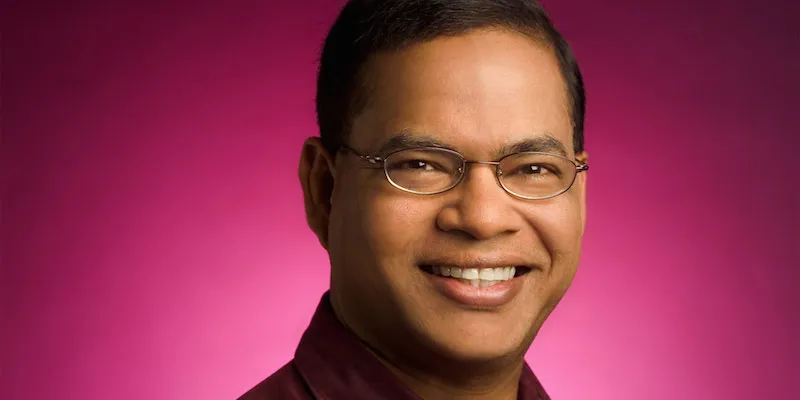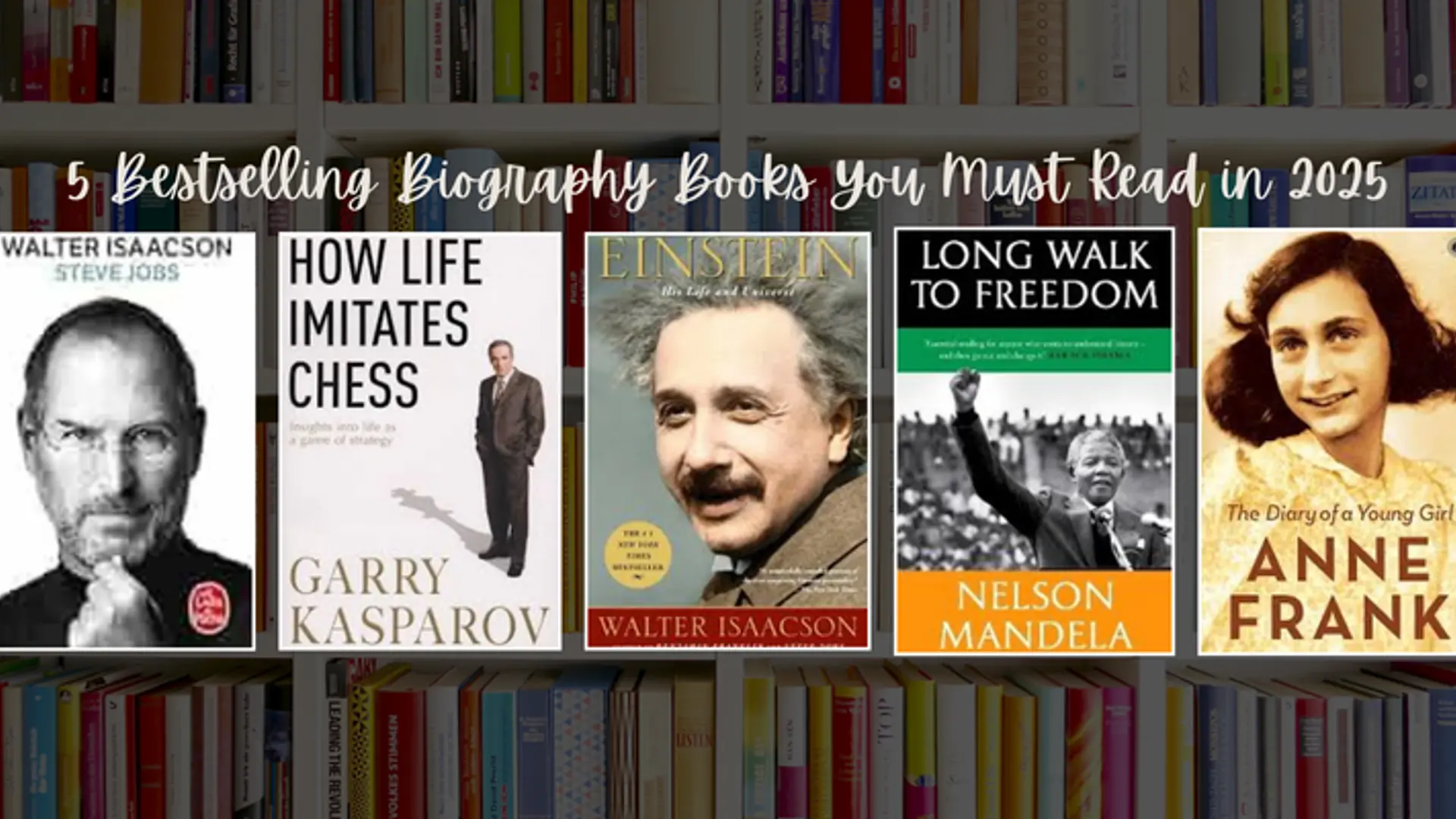Aim For The Moon - 20 Success Tips from Amit Singhal, SVP and Google Fellow
A packed hall of Bangaloreans enjoyed a stimulating evening of conversation with Google Senior Vice President and Fellow Amit Singhal, who architected the Google search algorithm in 2000 and then led a team which re-designed it in 2012. The original algorithms were designed by Google founders in the late 1990s.

The event was hosted by the Bangalore chapter of The Indus Entrepreneurs. “How often do you get to spend an evening with someone who invented a new word in the English dictionary?” joked Naganand Doraswamy, President of TiE Bangalore, reflecting how ‘Google’ has become a verb in our language.
Amit fielded dozens of questions from the audience, covering everything from artificial intelligence and mobile media to privacy and entrepreneurship. He also shared insights from his own personal life. “I grew up in the Uttarakhand region and can climb hills just like a mountain goat,” said Amit, who spent last week climbing mountains at 17,000 feet in Ladakh.
Here are my Top 20 takeaways from this engaging and inspiring conversation on the ‘symphony between machines and humans,’ as Amit beautifully described the online world.
1. Aim for the moon
“Take a moonshot. Aim for the moon when you choose a problem to solve,” Amit advised. Think big and you can easily solve small problems. For example, one solution to reducing accidents is to fit sensors on cars. A better solution is to make a driverless car, which is exactly what Google is doing. “If you want to create a $10 million company, aim to create a $100 million company,” he explained.
2. Do good in the world
Don’t just focus on an approach to making money – aim higher to do good for the world, and the revenues will come. At the very least, even if you don’t make too much money, you will be able to sleep happy. WhatsApp is doing a great job of connecting people and isn’t focusing just on revenue at the moment, but that will come later. Improve lives first, money will follow. Think of the broader ecosystem and not just a product.
3. Don’t just play defense
Once you find success, don’t just obsess with defending your turf – find the next big problem to solve, keep innovating. Playing defense may be important in the short term, but it won’t get you long term success. Keep an eye on your competition, but only occasionally in the rearview mirror – your real focus should be in front.
4. Diversity helps critical thinking
Don’t live in your bubble. Embrace and expose yourself to diverse views. Diversity and variety helps critical thinking. Google News helps you get access to news sources you may never ever have looked at in your normal searches – for example, newspapers from India and Pakistan, said Amit.
5. Work in open ecosystems
The online environment is splitting into open and closed ecosystems. Don’t play only in walled gardens advised Amit – the open Internet is good for broader innovation and benefits the whole of humanity. Openness is healthier.
6. When you come to a fork in the road, follow your heart and don’t look back
There are times in your life when you have a tough decision to make. “Follow your heart and don’t look back,” advised Amit. He himself had two such tough choices in his life – whether to join Lycos or Bell Labs (he chose Bell Labs), whether to become a professor or join the startup Google (he chose Google). If you follow your heart, you will sleep happy; don’t ask what could have been, said Amit.
7. Choose a few pithy core principles
Narrow down your work formula into just a few principles, and keep them so short you can fit them on a post-it. “My principles are: Users First, Faster Results and Design for Mobile,” said Amit. Every search design decision is based on these principles. Even in the larger battle being played out in the world of snooping and Big Brother, Google does not endorse a police state but keeps user concerns and freedoms at the fore.
8. Stay by your principles
Designing the principles is tough, sticking to them is even tougher, but you must do it. “We were pained when we saw that a search on Jew yielded anti-semitic pages first. But we did not change the result, we posted an explanation above that result which said that this page was recommended by the algorithm and not the Google team,” said Amit. Build firm walls for your company, don’t paper over the holes; build a solid foundation for values.
9. Core values: IRC (Integrity, Respect, Curiosity)
Three core values entrepreneurs must have are integrity, respect and curiosity, advised Amit. Be honest, that is key for long term success. Have respect for your colleagues – when you are 70 and having a beer with them, they should be able to say you were right in what you did. And be curious – never stop asking questions.
10. Keep multiple avenues for customer feedback
Smart and experienced though you may be, always check on the customer experience. Google has forms for people to fill out regarding their satisfaction levels with search, conducts regular surveys with users, and hires experts to assess search performance, eg. in the context of languages like Thai and Italian. Use implicit and explicit approaches to infer user behaviour.
11. Use technology for empowerment
Technology keeps getting better and faster and cheaper – use it to empower yourself and society. The Internet and mobiles are marvels of engineering. Geeks can change the world. Artificial intelligence, speech recognition, predictive analytics and mobility are all converging. Today a farmer with a 3G phone has access to more information than the King of Spain had 20 years ago. And smartphones will keep getting cheaper and better, so even the autorickshaw driver with a basic featurephone will soon get the full power of the global Internet brain in his hands.
12. Keep reinventing yourself and your industry
If you are an academic, educator, journalist or from any other sector for that matter, keep reinventing yourself. Educators have complained that Google makes it easier for students to think less and just ‘copy and paste’ – but Amit countered that calculators a generation ago also made it easier for students to skip memorisation of multiplication tables. The real issue is that education now has to shift focus away from rote learning. Some researchers are disappointed that more work on information retrieval is being done in industry than in academia – but they should instead focus on the next emerging challenges in search.
13. Hire people better and brighter than yourself
You may be smart now – but get over it, there will soon be others smarter than yourself. Surround yourself with people better and brighter than you, so you can get promoted to your level of incompetence!
14. Rest on your laurels but also be restless
It’s good to congratulate yourself on the work you have done so far, but there is so much more to do. “We have the best research team in the world and have a great product. But we are not satisfied, there are more challenges up ahead,” said Amit.
15. Don’t assume your success will be etched in stone
You as an entrepreneur may have succeeded with your current offering in the market – but get over it, it may only be temporary. Shifting technology and business environments may make your success obsolete in ways beyond your control.
16. Keep your innovation pipeline exciting
There are many innovation gurus out there claiming that innovation can be systematised and structured. “Innovation can’t be that well organised. Innovation is and should be kept messy. We keep our innovation pipeline sufficiently chaotic, it is more constructive that way,” advised Amit. There are limits to structure; too much structure kills open thinking. “Craziness is good,” he urged.
17. India can create the next Google
“When will the next Google emerge from India?” is a question often asked by angst-ridden entrepreneurs, investors and academics. “India has tremendous potential to build companies which can change the world,” said Amit. India has the crazy ones, the ones who can go out on a limb, but they need to be nurtured to go to the next level. Israel has created world-beating startups, so can India. “India is big, but we need to do things bigger than us,” said Amit. Don’t just aim to solve the problems of one billion Indians – solve the problems of the seven billion people of humanity. The Silicon Valley mentality is to solve the world's problems, that attitude can be adopted anywhere.
19. Watch your IP
A startup founder in the audience said he had a product and wanted to work with Google on scaling it. “Watch your IP and make sure it doesn’t get tangled up with legal issues,” advised Amit. “Better yet, come work for us,” he joked.
20. Keep a sense of humour
Learn how to laugh at the quirky nature of human beings and the unpredictability of life. Amit didn’t say it as many words, but this showed throughout the evening with his jokes and quips. “When people search for golfer Vijay Singh, you know they want information on his golf scores. But when people search for Tiger Woods, you know they are searching for something else,” he joked. A memorable moment for this Google Fellow was when he asked his kids a question, and they asked him to look it up on Google!
When asked what he would be doing if not at Google, Amit said he would become a carpenter: “I like making tables!” When asked a whole range of questions about search and objectionable content, Amit joked that Google was not the Internet – it only indexes online content. “Stop blaming Google for everything, we are just a bunch of machines,” he quipped.
The evening came to an end after 90 minutes, but the audience had a ton of other questions on the future of ranking, the meaning of privacy, the right to be forgotten, and so on. Still, it left them with lots of ideas and energy to tackle the legendary Bangalore evening traffic, with another glorious event after that: the World Cup 2014 kickoff in Brazil!
Will India ever win the World Cup? Will India create the next Google? Food for thought and action indeed!
About Amit Singhal
Amit Singhal is Senior VP and Google Fellow. He is the head of Google's core ranking team. Born in Jhansi, Uttar Pradesh, India, Amit received a Bachelor of Engineering degree in computer science from IIT Roorkee in 1989. He received an M.S. degree from University of Minnesota Duluth in 1991 and Ph.D. from Cornell University in 1996. At Cornell, Amit studied with Gerard Salton, a pioneer in the field of information retrieval, regarded as "the father of digital search."
He then joined AT&T Labs (previously a part of Bell Labs), and was persuaded by his friend Krishna Bharat to join Google in 2000. In 2011 he was inducted as a Fellow of the Association for Computing Machinery. Fortune magazine named Amit Singhal one of the smartest people in tech. In 2011, Amit Singhal was given the Outstanding Achievement in Science and Technology Award at The Asian Awards.







